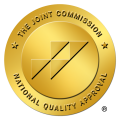Addressing Challenges with Medical Billing and Coding for Substance Use Disorders
Every rehab treatment facility has the goal of helping people recover from substance use disorders. Unfortunately, facilities must also deal with the business side of operations, including medical billing and coding to receive paid for services. Keep reading and learn how to improve not only business practices but also a facility’s bottom line.
Increase Profits by Outsourcing Medical Billing and Coding for Substance Use Disorders
One of the easiest and fastest ways to increase a facility’s profits is to increase medical billing and coding. By outsourcing this essential business activity, a treatment facility’s staff can spend more time on the core business of treating people with substance use disorder (SUD).
The facility would increase revenue because billed revenue would come in faster. An increase in profit equals more patients and, therefore, more profit. Every facility should ask the following three questions:
How much of a facility’s profits come from billing?
Nearly all of a facility’s profits come from billing. If the treatment facility is a for-profit agency, close to 100% of the facility’s profits come from billing. If it is a nonprofit, it may require some fundraising and grant revenue, but it will still rely primarily on billing to make payroll. For this reason, billing is a priority for any substance use disorder treatment facility if it wants to keep the doors open.1Do treatment facilities typically have optimized billing processes?
Too often, SUD treatment facilities try to do it all themselves rather than concentrate on their core business. If a facility does not have an expert dedicated to medical billing and coding, then it is not getting done in the most efficient way possible. Optimizing facility billing processes gets billing out and revenue back quicker.
Do employees focusing on treatment have time for billing?
Rehab facilities have significant responsibilities as the staff is handling people’s lives. In many cases, it can be a matter of life or death. Staff hired to care for a facility’s patients cannot be distracted by medical billing and coding issues. Their attention needs to be solely on patient care.
Medical Billing and Coding Roadblocks for Addiction Treatment
Getting reimbursed for addiction treatment is no easy task. Obstacles are plentiful and can be confusing and frustrating to process. Facilities may feel like they are constantly jumping through new hoops with each monthly submission for reimbursement. There are various challenges to face when it comes to in-house medical billing and coding:1
Verification of Benefits
When a facility gets a new patient, they must verify the patient’s benefits so the facility knows they will be reimbursed for treatment services. But this is not a one-time verification process. The facility needs to verify benefits every month to make sure a patient’s benefits are still in place before continuing services or submitting billing.Coding
Understanding the coding of services is essential if a rehab facility wants to be reimbursed. Coding differs from one provider to another. A facility needs to know the specific codes for various addiction treatments, and there may be separate codes for detox, alcoholism, heroin addiction, and general group therapy. If the coding is wrong, reimbursement is delayed.
Third-party Payments
Payments by third parties can vary. One party may pay within 30 days while another takes 90 days to reimburse the facility. Payments are typically from insurance companies, but they can also be from nonprofit organizations. Each type of payment has reimbursement procedures that must be followed exactly. Otherwise, payments are delayed.
Accounts Receivable
Managing the revenue cycle, income, and out payments of a treatment facility involve coordinating the medical billing and coding process. The facility should have more income coming in than payments going out. However, it is not unusual for treatment facilities to experience the opposite.
Coding and billing are complex processes, and not just any facility staff member can complete this work. Coding and billing need someone detail-oriented, deadline-focused, and who understands the required billing codes.
Billing Codes for Substance Abuse
- DSM-5: The Diagnostic and Statistical Manual of Mental Disorders (DSM-5) details the classifications of known mental disorders. Mental health professionals use it to assist with diagnosis, development of treatment plans, and identifying research needs.2
- ICD-10-CM: The National Center for Health Statistics (NCHS), which is part of the Centers for Disease Control (CDC), has oversight responsibility of the International Statistical Classification of Diseases and Related Health Problems (ICD-10-CM). Codes for billing can be found in the ICD-10-CM. A facility needs to keep up-to-date on all annual changes for accurate and timely reimbursement. Coding for mental disorders or DSM-5 disorders comes into play at this point.3
Codes are not only used for billing; they also are used for diagnosis and are included in each patient’s health record at the facility. Proper management of patient records is an added burden that requires ongoing understanding and training of every staff member.
Substance Abuse Electronic Health Records
An essential component of medical billing and coding is having a patient’s health records in electronic format. A treatment facility must understand legal aspects for creating or accessing electronic health records for substance abuse patients.
Requirements
When maintaining or transmitting a patient’s electronic health records, facilities are required to encrypt the files to ensure they are protected from prying eyes. Electronic health records must be handled by the fewest number of people possible. It is important to make sure both internal and outgoing communications are encrypted and follow the state and federal encryption guidelines.Privacy
Under the Health Insurance Portability and Accountability Act (HIPAA) of 1996, any facility dealing with patient health information is mandated to keep it confidential and private. Each facility must establish HIPAA protocols and procedures, including appointing a HIPAA Officer and providing procedure training for all staff members.4
Data management
Maintaining patient health data is essential. HIPAA rules and regulations guide in this area. Confidentiality of patient data is a must, and a facility must ensure that an outsider cannot hack into electronic patient health records. Internet security is one more layer of protection for patients.
Managing electronic health records is yet another reason to consider outsourcing medical coding and billing. Treatment facilities lower the potential of lawsuits over poor security or of someone gaining unauthorized access to a patient’s health record. By outsourcing, the facility eliminates that risk.
Getting Insurance Reimbursements Faster to Increase Profits
By outsourcing medical coding and billing, a facility is likely to obtain a higher insurance reimbursement rate and increase profit. Outsourcing medical coding and billing experts increases a facility’s reimbursements because billing experts are more likely to keep abreast of changing codes or rules from insurance companies.
Billing experts also have a more stable relationship with insurance companies than rehab facilities, because they communicate with these companies on behalf of numerous patients. These experts know the ins and outs of the reimbursement process better than any single facility.
By outsourcing, facilities also eliminate any concerns of internal fraud associated with billing. Typically, the staff member handling finances also does the billing, making it easier to commit fraud. However, if the outsource partner commits fraud associated with the billing, they are liable, not the treatment facility.
By solving major internal issues through outsourced billing, treatment facilities receive insurance reimbursements faster. Facilities no longer need to worry about getting paid on time while simultaneously dealing with patient care, accreditation, and staffing issues.
Outsourcing Medical Billing and Coding Lets a Facility Focus on Patients
A rehab facility cannot go wrong when it focuses on patients. When a facility no longer needs to tend to medical billing and coding, the staff can provide better care for the patients. The facility’s staff are not distracted or worrying about payroll, meaning that they can give patients quality attention. Staff can continue to work with confidence and do what they do best.
When patient care improves, a facility’s overall reputation improves as well. Substance use disorder treatment facilities rely on excellent reputations for growth. Quality patient care is essential for positive online reviews as well as word-of-mouth recommendations, both of which lead to further growth.
Outsourcing has always been an option for service agencies, and treatment facilities are no different. By outsourcing specific activities such as medical billing and coding, facilities can receive higher reimbursements, more referrals, and higher patient satisfaction rates. If you want to improve your treatment facility, starting outsourcing billing and coding tasks.




